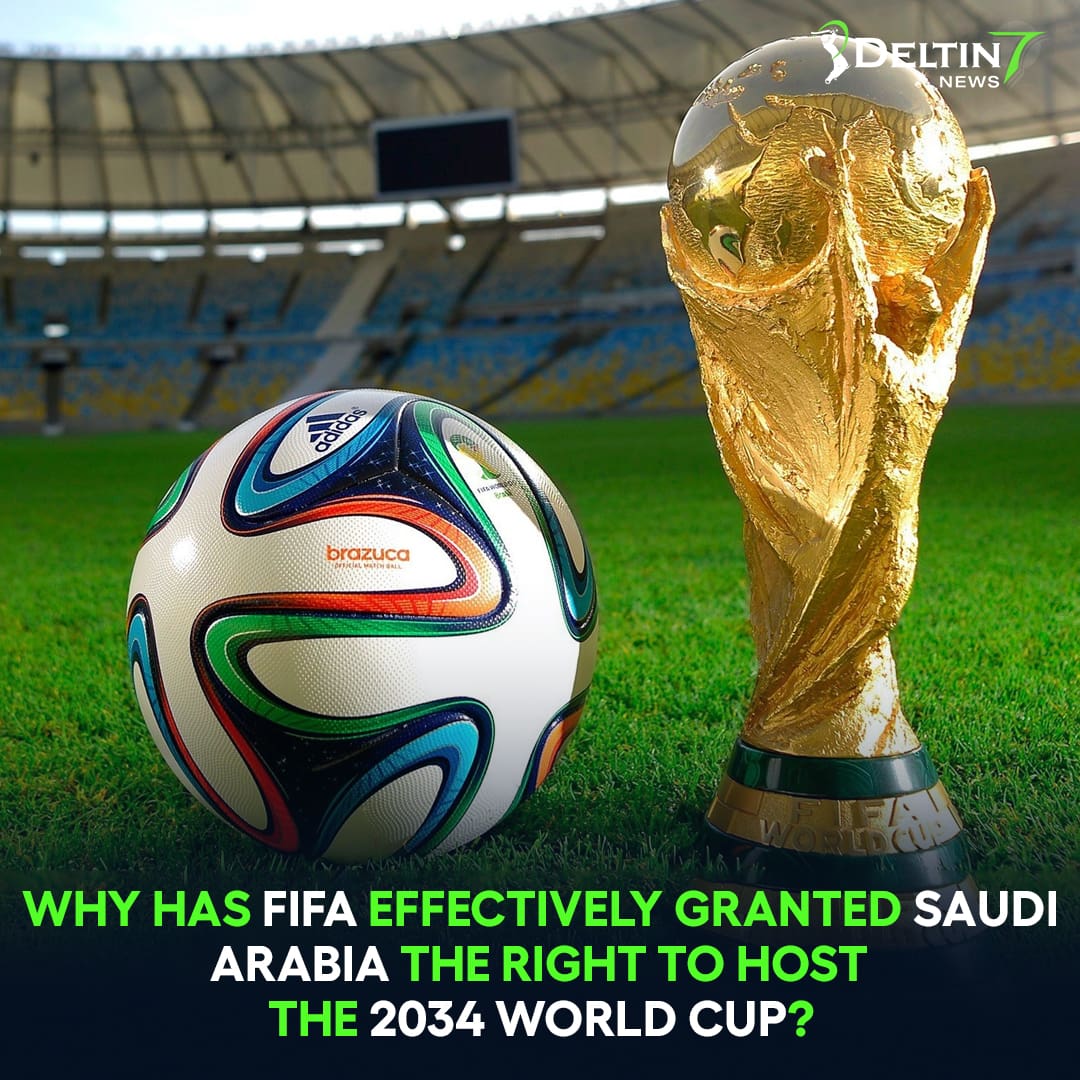
The Kingdom is the only remaining bidder as Australia withdraws from the competition, and it plans to add the tournament to its lineup of high-profile athletic events.
With Australia withdrawing from the competition to host the 48-team competition, the governing body awarded Saudi Arabia the hosting rights, effectively deciding the location of the FIFA governing Cup in 2034.
James Johnson, the manager of Football Australia, had previously stated that his nation was “exploring the possibility of 2034,” but in the face of several difficult issues, the organization announced that it will instead concentrate on bids for the 32-team 2026 Club World Cup and the 2026 Women’s Asian Cup. Australia also made an attempt to host the 2022 World Cup, which Qatar ultimately won.
It appears that FIFA itself has prepared the stage for Saudi Arabia to host a World Cup, just 12 years after Qatar held the competition.
When FIFA announced who would host the 2030 World Cup, the process got underway. FIFA effectively “gave” the hosting rights of the World Cup to South America, Europe, and Africa in one event by holding the first three games in Uruguay, Argentina, and Paraguay and then moving the tournament to Spain, Portugal, and Morocco. This effectively limited the potential hosts for the 2034 edition to Asia or a country in the Oceania region.
FIFA not only revealed that there will be a World Cup in 2030 spanning six nations and three continents, but they also established a very strict deadline of October 31 for nations to express interest in hosting the tournament.
Another one-month deadline would come after that one, but this one would be for a bidding agreement that would need approval from the government. In essence, FIFA handed Australia two months to convince their government to support the unlikely endeavor of hosting a 48-team World Cup. There were rumors that Australia, Singapore, and Indonesia may submit bids for the event; however, a week later, Indonesia supported Saudi Arabia’s proposal, dashing Australia’s aspirations.
Strangely, the Asian Football Confederation supported Saudi Arabia when they revealed their intentions to bid hours after FIFA made their initial statement. In addition to Asia’s top football organization, other nations, notably India, chose to back Saudi Arabia’s proposal. Prior to this, the All India Football Federation withdrew its candidacy to host the AFC Asian Cup in 2027, clearing the path for Saudi Arabia to take center stage.
The Saudi Arabian government, which has made significant expenditures in a variety of sports and started making moves to establish itself as a de facto dominant force in the sports world, is pursuing a broad and ambitious agenda that includes hosting the FIFA World Cup. A portion of the goal is to diversify their economy away from oil and gas in order to create a viable economy in the event that their natural resource supplies run out.
Saudi Arabia has made several attempts to seize control of sport, but has faced little to no opposition. Examples of these attempts include LIV Golf, the Saudi Pro League, the purchase of Newcastle United, and even the shift in the esports ecosystem towards Riyadh. The money factor is mostly to blame for this. The Saudi government has invested enormous financial resources to make these events possible. It has offered players from the top leagues in Europe record payouts to join the Saudi Pro League, and it has done the same with players from the PGA Tour and the DP World Tour (formerly the European Tour) to entice them to join LIV Golf.
The phrase “sportswashing” refers to the use of sport by a group or nation to “improve its image against preconceived negative notions that have long followed them,” and it has been applied to the Saudi kingdom.
Regarding the charges of sportswashing, Saudi Arabia’s Crown Prince Mohammed bin Salman stated the following in a Fox News interview last month. “I would definitely keep doing sportswashing if it meant that my GDP would rise by 1%.” He went on, “I don’t care.” One percent of GDP growth comes from sport, and I want to increase that by another 1.5 percent. Whatever you want to call it, we’re going to receive that 1.5 percent.
The human rights record of Saudi Arabia, which shows that women have few rights, the practice of systematic executions for a range of offenses, and the denial of LGBTQ+ rights are the reasons this is seen as an attempt at sportswashing by the country. According to a US government intelligence report, Saudi operatives killed journalist Jamal Khashoggi in 2018 because he had been critical of the Saudi regime on a regular basis. Crown Prince Mohammed bin Salman has disputed the allegations.
In fact, FIFA’s director of global projects, Minky Worden, of Human Rights Watch, an advocacy and research organization with headquarters in New York, urged the organization to postpone the 2034 tournament.
“By conducting the World Cup bidding and selection procedures in an unethical, opaque, objective, and biased manner, FIFA is failing in its responsibility to the football community,” Worden stated.
Citing Article 7, which declares that “Where the national context risks undermining FIFA’s ability to ensure respect for internationally-recognized human rights, FIFA will constructively engage with the relevant authorities and other stakeholders and make every effort to uphold its international human rights responsibilities,” HRW further stated that FIFA was breaching its own laws by giving the World Cup to Saudi Arabia.
Desert Vipers vs Dubai Capitals ,DV vs DC T20 Match Bold Prediction for Today's Exciting…
MI Cape Town vs Paarl Royals, MICT vs PR T20 Match Prediction, Today's Thrilling Match…
Rangpur Riders vs Khulna Tigers BPL T20, Today Match Prediction & Expert Team Review RGR…
Pakistan vs West Indies, PAK vs WI 2nd Test Match Prediction, Analysis & Thrilling Review…
Sydney Sixers vs Sydney Thunder BBLT20, Today Thrilling Match Prediction & Detailed Review SYS vs…
Australia vs England Women Ashes T20, Expert Match Prediction & Winning Insights AUS-W vs ENG-W…